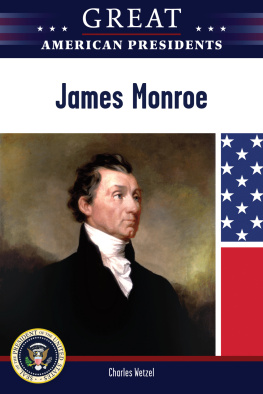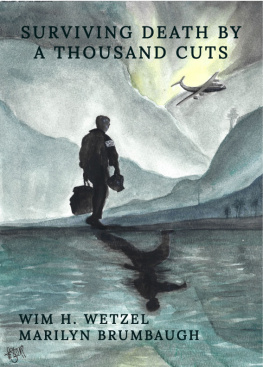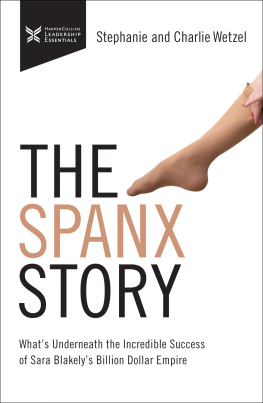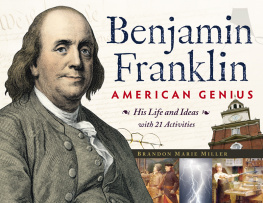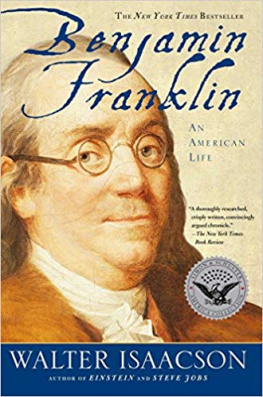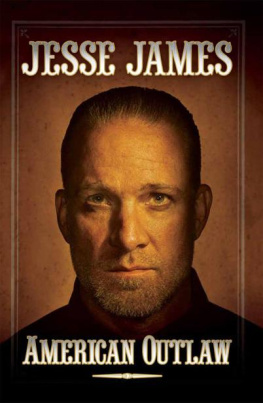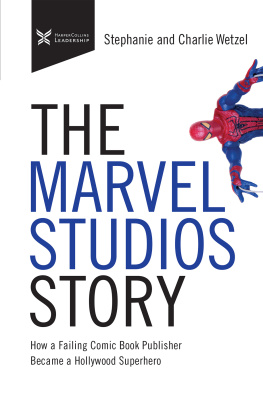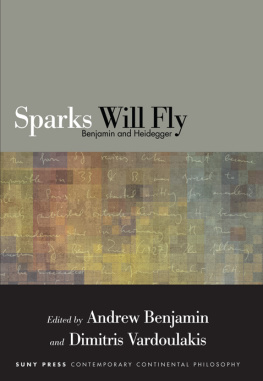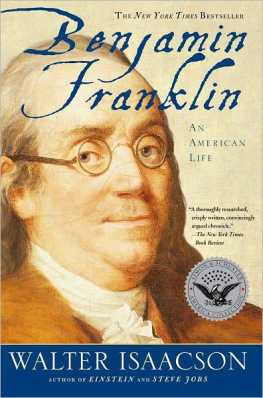Benjamin J. Wetzel - American Crusade
Here you can read online Benjamin J. Wetzel - American Crusade full text of the book (entire story) in english for free. Download pdf and epub, get meaning, cover and reviews about this ebook. genre: Religion. Description of the work, (preface) as well as reviews are available. Best literature library LitArk.com created for fans of good reading and offers a wide selection of genres:
Romance novel
Science fiction
Adventure
Detective
Science
History
Home and family
Prose
Art
Politics
Computer
Non-fiction
Religion
Business
Children
Humor
Choose a favorite category and find really read worthwhile books. Enjoy immersion in the world of imagination, feel the emotions of the characters or learn something new for yourself, make an fascinating discovery.

- Book:American Crusade
- Author:
- Genre:
- Rating:3 / 5
- Favourites:Add to favourites
- Your mark:
- 60
- 1
- 2
- 3
- 4
- 5
American Crusade: summary, description and annotation
We offer to read an annotation, description, summary or preface (depends on what the author of the book "American Crusade" wrote himself). If you haven't found the necessary information about the book — write in the comments, we will try to find it.
American Crusade — read online for free the complete book (whole text) full work
Below is the text of the book, divided by pages. System saving the place of the last page read, allows you to conveniently read the book "American Crusade" online for free, without having to search again every time where you left off. Put a bookmark, and you can go to the page where you finished reading at any time.
Font size:
Interval:
Bookmark:
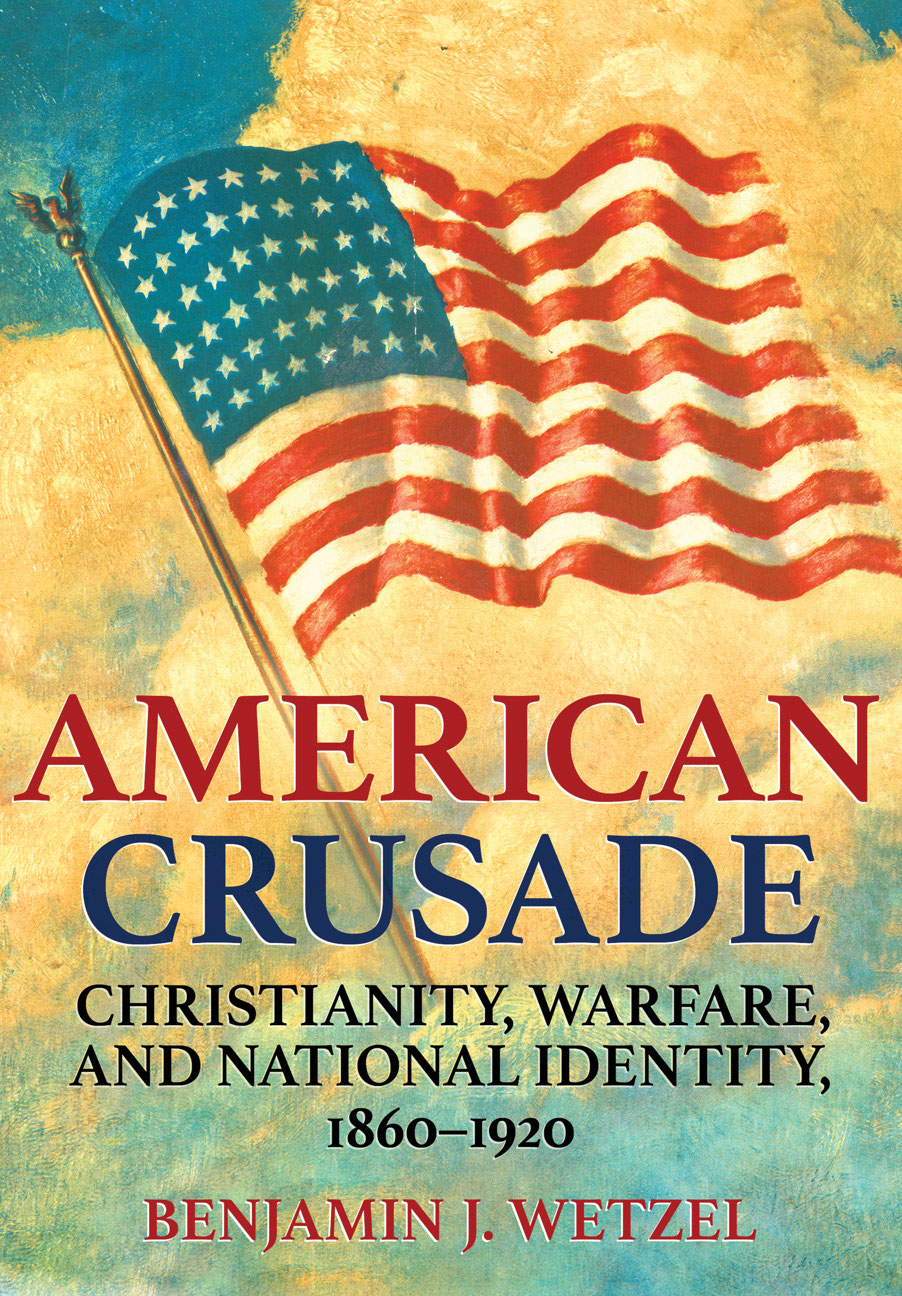

CORNELL UNIVERSITY PRESS
Ithaca and London
To Joan B. Wetzel (19582003) and James H. Wetzel
Many thanks are due to the multitude of friends and colleagues who helped me write this book. I first want to thank D. G. Hart, who put me in touch with Cornell University Press. At Cornell, Michael McGandy believed in the project from the start and patiently helped me navigate the editorial process. Sarah Elizabeth Mary Grossman became my editor at the books final stages and ably guided it to completion. The book is much better thanks to the valuable suggestions of Cornells two anonymous peer reviewers.
In its earliest stages, the project began at Baylor University. In that regard, I wish to thank Barry Hankins, Thomas S. Kidd, and Barry Harvey. Baylors Guittard Fellowship allowed me to pursue my graduate work without financial worries. The project matured at the University of Notre Dame. Mark Noll, a Christian scholar and gentleman if ever there was one, mentored me there, as did Rebecca Tinio McKenna and James Turner. Harry S. Stout at Yale also deserves special thanks. The members of Notre Dames weekly Colloquium on Religion and History offered helpful suggestions on several occasions and shaped my intellectual growth. Philipp Gollner supervised my translation of German passages.
Notre Dame also provided unusually generous financial support during my seven years there. I thank the Department of History, the Graduate School, and the Institute for Scholarship in the Liberal Arts for providing research and travel grants. Postdoctoral fellowships provided by the College of Arts & Letters and the Cushwa Center for the Study of American Catholicism provided space to revise the manuscript. I would especially like to thank John T. McGreevy for the former and Kathleen Sprows Cummings for the latter.
At my current institution, Taylor University, I would like to thank Michael Hammond, Thomas Jones, and Kevin Johnson for their support of my research and writing. Daniel Bowell, Lana Wilson, Jan King, and the staff of the Zondervan Library consistently helped with research and interlibrary loan requests. I am grateful to Barbara Bird, Kris Johnson, and the Bedi Center for Teaching and Learning Excellence for providing subvention funds to help with the books publication and for providing a grant to hire a student to help prepare the index. Mallory Hicks did an excellent job in that regard.
The following archives generously granted permission to quote from their collections: The Congregational Library & Archives; the Brooklyn Historical Society; the George J. Mitchell Department of Special Collections & Archives, Bowdoin College Library, Brunswick, Maine; and the University of Notre Dame Archives. I thank Cambridge University Press and the Journal of the Gilded Age and Progressive Era for permission to quote from an article that became an earlier version of chapter 4; Oxford University Press and the Journal of Church and State for permission to quote from an article that was an early version of chapter 3; and the Congregational Library & Archives and Bulletin of the Congregational Library for permission to quote a few paragraphs from an article that became chapter 1.
I thank the leadership and members of Redeemer Church in Niles, Michigan, for their friendship and spiritual support during my years at Notre Dame. Now I am pleased to call Upland Community Church home, and I thank Pastor Mark Biehl and the congregation for their friendship.
Personal thanks are due to my familyfirst and foremost to my wife, Megan. I would also like to thank my Stanton in-laws in Michigan and my extended Wetzel family in Pennsylvania and Virginia. This book is dedicated to my parents, James and Joan Wetzel, who supported me in every good endeavor.
Dr. Newell Dwight Hillis, pastor of Plymouth Church, Brooklyn, preached a sermon last night on Lord Lansdownes peace proposals, reported the New York Times on December 3, 1917. Lansdowne had written a letter detailing a proposal for peace to end the Great War and stop the mass slaughter occurring in Europe, but such ideas only offended Hillis: I abhor the letter because it lays too much stress on human life, Hillis was reported to have said. What is human life? All the great things of the world have been done through martyrdom. Hillis was not alone among New York clergy in his militaristic posture and aggressive stance toward the Germans. The same New York Times article reported on the declarations of various clerics across the city concerning the war. Dr. Hugo Black of the progressive Union Theological Seminary also rejected any premature peace plans, stating that Germanys sinister philosophy which brought this war about must first be crushed. In Union Square, Robert A. Kells of the Bible Readers Institute drew comparisons between the Kaiser and the Devil in the course of his homily. And uptown, at St. Patricks Cathedral, the Catholic priest John E. Wickham got in on the act when he added a nationalistic word as well: The Christian remembers that patriotism is not only a civic duty, but also a Christian duty, and the man disloyal to country is disloyal to God.
The comments of New Yorks clergy on Advent Sunday 1917 were simultaneously remarkable and ordinary. They were remarkable since they featured ministers of God roaring for German blood and exalting the American nation-state. But they were ordinary too, for in linking Christianity with nationalism, associating Americas enemies with the devil, and equating dead soldiers with religious martyrs, they were following a pattern that had a long history in the United Statesbut one that has yet to be fully appreciated or understood.
This book seeks to recover this sort of mentality. Far from anomalous, ministerial blessings on Americas wars often reflected the consensus among the mainline Protestant leadership in the Northeast, the nations religious center in terms of influence among elites. Repeatedly during the Civil War, the Spanish-American War, and World War I, the white Protestant religious leadership endorsed the nations conflicts. They did so in ways that evoked holy wars or medieval crusades, imbuing their political commentary with religious import. When Hilliss colleague, the Reverend Lyman Abbott, baldly declared World War I a twentieth century crusade in 1918, he said only a bit more loudly what his clerical friends and colleagues commonly declared from their pulpits. Although there were dissenters and outliers who nuanced or rejected such languageand their stories will be told here tooby and large white Protestant churches tended to be churches militant.
Yet as much as Hillis, Abbott, and their kind spoke to, and for, their colleagues (and by extension a sizeable portion of the national Christian community), they did not speak for all American Christians. The opinions of religious groups far removed from elite Protestant leaders ideological convictions and lofty social position offer a striking contrast in their interpretations of Americas military conflicts. Whereas Northern white Protestant leaders tended to lend religious sanction to armed conflict, groups on the margins like Black Methodists, conservative Catholics, and Midwestern Lutheranswhat I call counterpoint groupsoften refused to do so. Their specific theological positions and social location impelled their alternative approaches to war and peace.
Font size:
Interval:
Bookmark:
Similar books «American Crusade»
Look at similar books to American Crusade. We have selected literature similar in name and meaning in the hope of providing readers with more options to find new, interesting, not yet read works.
Discussion, reviews of the book American Crusade and just readers' own opinions. Leave your comments, write what you think about the work, its meaning or the main characters. Specify what exactly you liked and what you didn't like, and why you think so.

